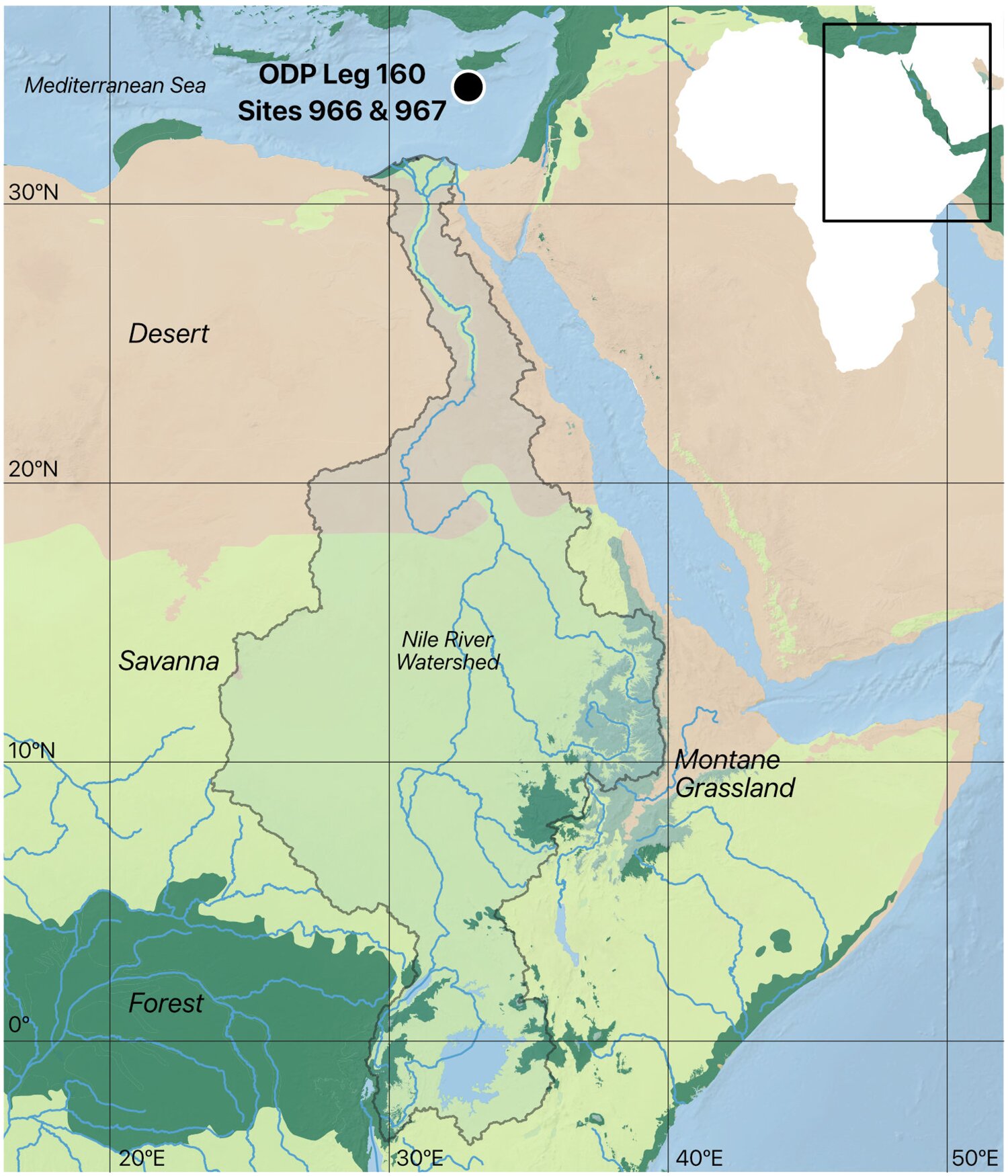About 6 million years ago, in the deep forests of eastern Africa, something spectacular happened. Chimpanzees, our closest relative in the animal kingdom, evolved in one direction, while our earliest ancestors continued in another.
Over the next millions of years, the differences between early humans and chimpanzees became greater and greater. Our ancestors climbed down from the trees, began to walk upright on two legs, and thus freed their hands to handle tools.
This was the beginning of a development that ended with humans conquering most of the globe.
About 2.1 million years ago, the first humans—Homo erectus—migrated from Africa. The journey went through northeastern Africa and the Middle East—areas that are mainly covered by desert today—and onwards to Europe and Asia.
For a long time, researchers have speculated on how Homo erectus could cross the dry and merciless desert, where there was neither food, water nor shade.


